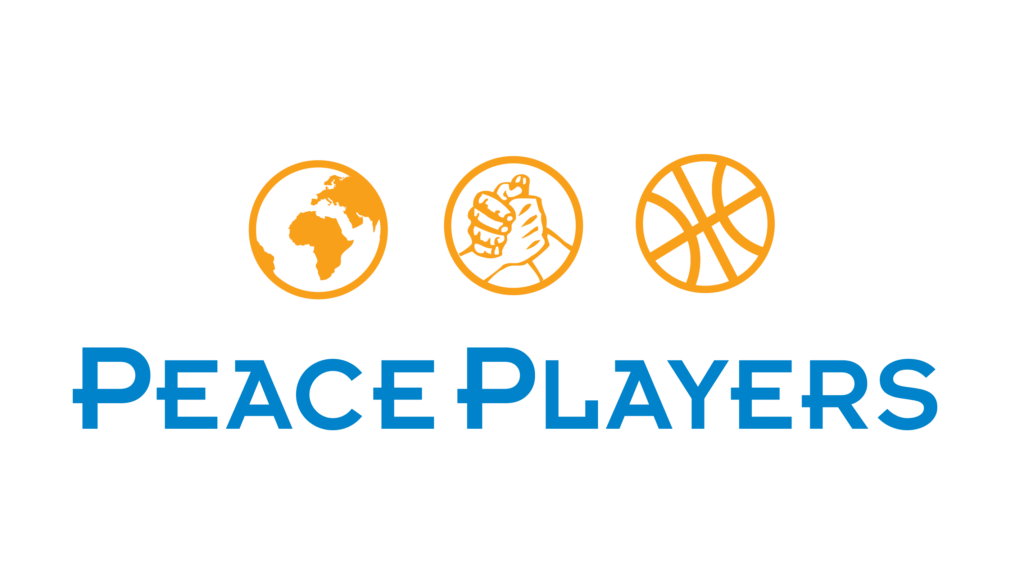United States: Catching up with onyeka and Alesha
March 26, 2024
SHARE
We talked to Onyeka Arah, a PeacePlayers alumna and current board member, as well as with PeacePlayers Brooklyn Director Alesha Smith, about the vital role basketball has played in their lives and the transformative power it holds for the youth people of PeacePlayers U.S.
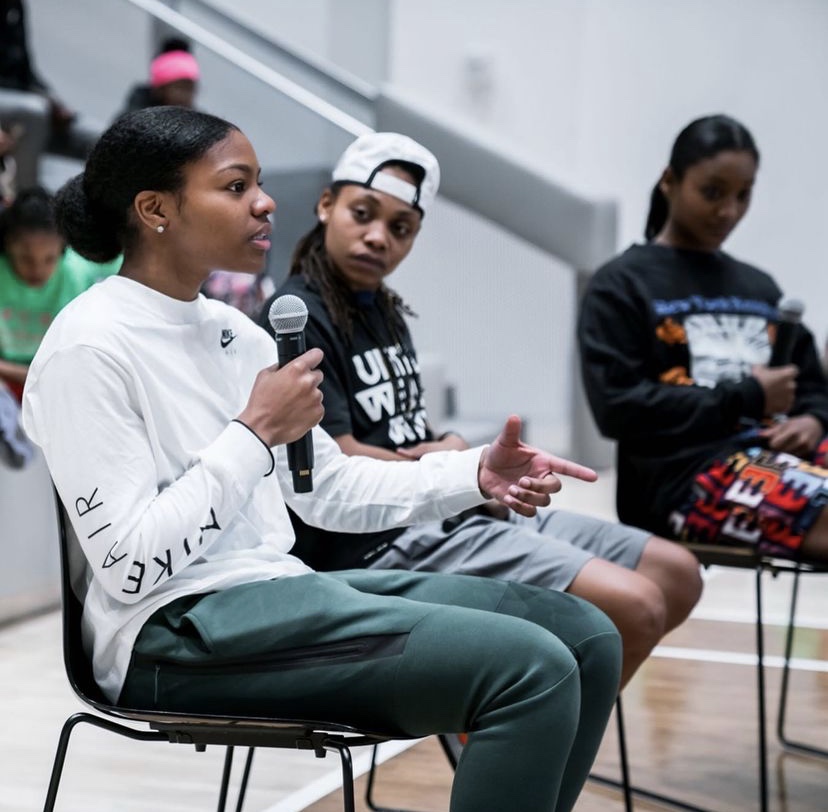
PeacePlayers: Tell us a little bit about yourself.
Alesha: Although I have a very Southern accent, I was actually born in Brooklyn, but I was raised in Athens, Georgia. I grew up in a basketball family and I played my entire life. When it finally came time to put my sneakers up for good, I decided that I wanted to go into a career dedicated to empowering people. When I was later introduced to PeacePlayers, I totally fell in love. Beyond just putting kids on a basketball court, they were teaching those conflict resolution skills, teaching those peacebuilding skills, teaching those leadership skills. It was clear that the work was bigger than just
basketball so it was a no-brainer saying “yes” to the Director role. I have spent almost a decade working in the NYC nonprofit sector and I am proud to say that my work is dedicated to the intersection of sport and social change. At PeacePlayers I am able to combine my love for social justice, my love for community, and my love for basketball into this one thing.
Onyeka: I am a first generation Nigerian American, born and raised in Silver Spring, Maryland. Currently, I am a Junior at the University of Maryland, studying sociology and public policy with a focus on nonprofit leadership and social innovation. I grew up playing basketball, first and foremost. I actually participated in the first [PeacePlayers] United States Leadership Development Program. We were coached in basketball and leadership skills, and ended up culminating that experience with a trip to the Middle East. So traveling to the Middle East, and just finding out how global this movement is, and how sport can change people's lives, that's really what brought me to where I am today. More recently, I was a youth development coach and then an Up2Us coach [at PeacePlayers Baltimore], and then from there I did the PeacePlayers Fellowship. And now I'm a PeacePlayers U.S. Board Member.
PeacePlayers: What’s the purpose of PeacePlayers in the communities where you work?
Onyeka: So, Baltimore is unique in that the city has been historically divided. There's what they call the Black Butterfly and the White L. So you have two sides of the city that have been disinvested in and people are experiencing hardship and socioeconomic disadvantage. But culturally, people have similar experiences, whether they live on the East Side or the West Side. And then you have the White L, which breaks up that Black Butterfly. That's where you have investments and opportunities and things like that. So with PeacePlayers Baltimore, we bring [the East Side and the West Side] together. It works because they know that they're all PeacePlayers at the end of the day.
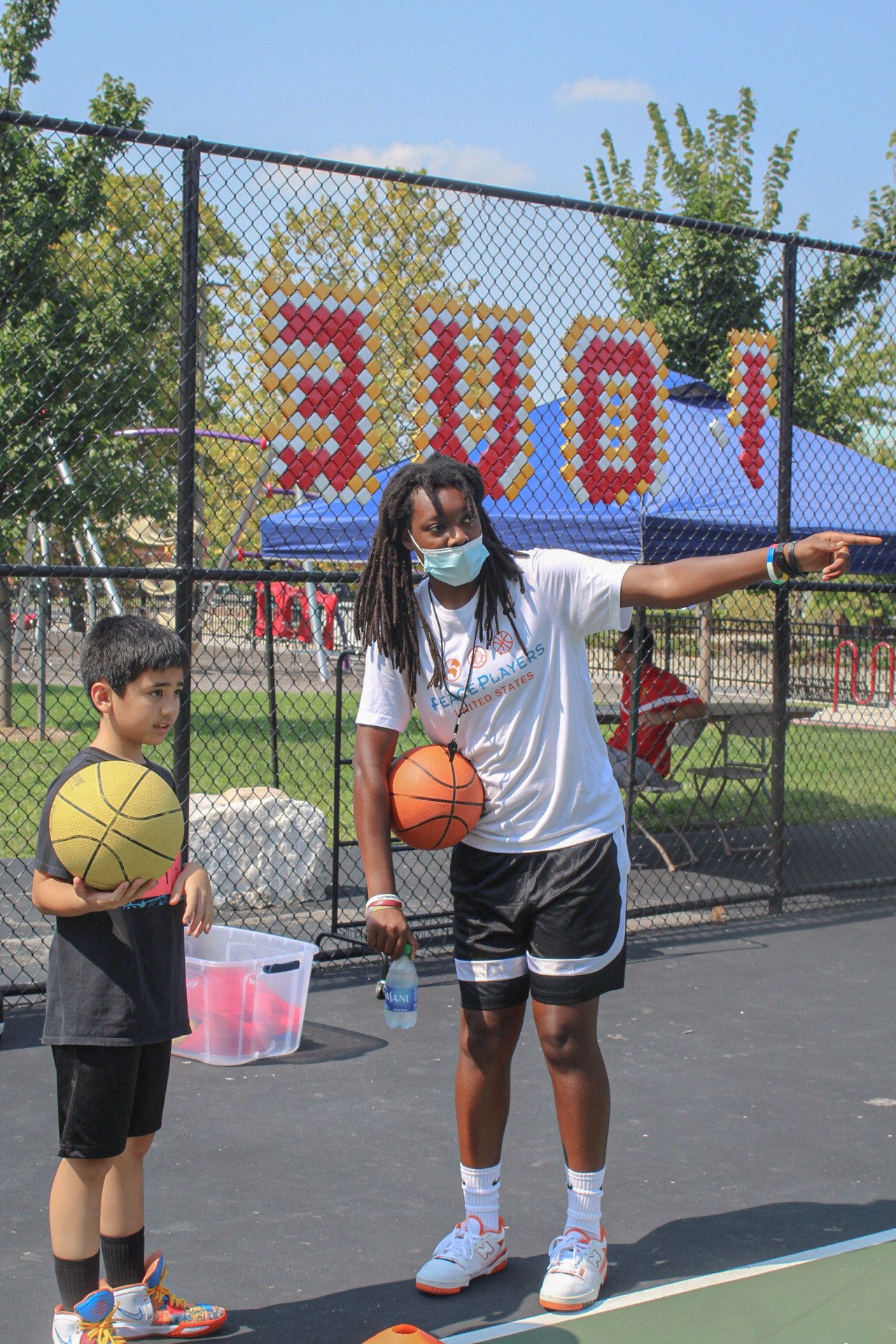
"Sports can be a safe haven for kids. But if basketball is an escape, we want them to walk away with tools that allow them to not necessarily always have to just run away from how they're feeling, but to actually be able to address and manage what's going on."
- Onyeka
Alesha: PeacePlayers breaks down community barriers, puts kids on a basketball court, and uses the game to really bridge the divides that are in those communities. In Brooklyn, we got our start in Brownsville, but now have ventured into other neighborhoods that deal with similar issues that Brownsville faces… so, Crown Heights, Bedford-Stuyvesant, East New York, and Canarsie. Though the divides (gun and gang violence,etc) are ever present, we have seen first hand the transformational impact that sport can have on bringing communities together. Beyond bridging divides, another focus of our work is creating equitable opportunities. I think an issue that's not really spoken about enough is how access to free, expert led basketball programming is hard to come across in this pay-to-play model in New York City. To get access to great basketball instruction and opportunity, you oftentimes have to have money. PeacePlayers is breaking down that barrier and providing real access to free sports development coaches who understand the importance of the holistic development of young people, but also are really skilled and understand how to incorporate the basketball and life skill pieces together.
"I have always said that the basketball court is a classroom. You learn so many life lessons from the game that go beyond the game. I still lean on the life lessons that basketball has taught me."
- Alesha
PeacePlayers: So when a young person comes to your program in Brooklyn, what do you think they're looking for?
Onyeka: Some of the kids come because they love basketball. Also, many parents need somewhere to keep their kids after school, and we provide free programming and we also feed the kids after programming. The parents know, ‘This is a safe place for my child to be until I get off of work.’ But many of the kids, and specifically the girls, I've noticed, they come for friendship. They come for social interaction. They come for fun. Not everyone really wants to be a competitive basketball player. Not everyone is super interested or even fully understands the leadership aspect, or the conflict resolution aspect. But everyone does know what it feels like to have friends, and to have coaches who look out for you and will listen to you.
Alesha: Often, kids come in thinking that PeacePlayers is just your typical basketball team. They are ready to lace up and play basketball, but are pleasantly surprised that they get much more
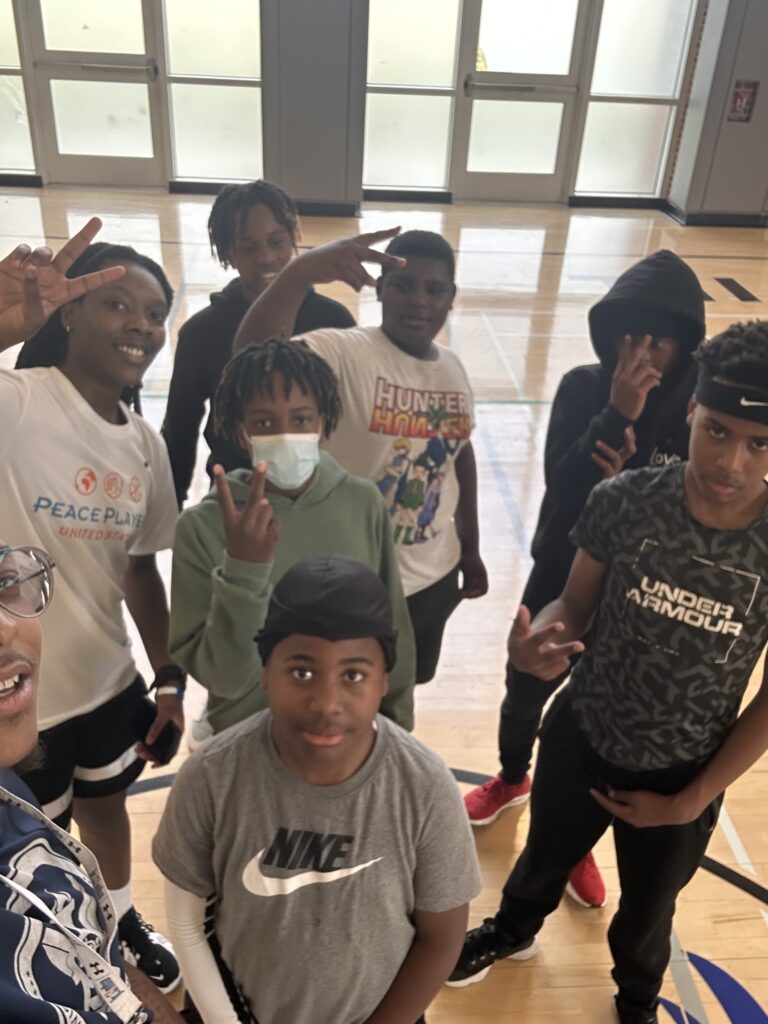
than that from us. We provide young people with a safe place to be themselves, trained coach mentors that support them, leadership and career development, and life changing opportunities to take part in global trips and exchanges. They may come into our program knowing no one, but having joined us, they are not only members of a youth movement but members of a true family.
"Often, kids may come into our program knowing no one, but having joined us, they are not only members of a youth movement but members of a true family."
- Alesha
PeacePlayers: What’s the impact of basketball in all of this?
Onyeka: Obviously sports improve physical health, and then there are also many mental health benefits. Sports, a lot of the time, can be a safe haven for kids. But if basketball is an escape for participants, we want them to walk away with tools that allow them to not necessarily always have to just run away from how they're feeling, but to actually be able to address and manage what's going on. So that's something that PeacePlayers does really well. You know, through playing basketball, you can meet people you otherwise never would have met. I've made so many connections playing, and now coaching basketball, that have continued to serve me in school and professionally. I never saw this path for myself, but basketball brought me here. PeacePlayers helped bring me here. So, it's going to be amazing to see where all the young PeacePlayers go, and all the doors that open up for them, largely because they participated in our program.
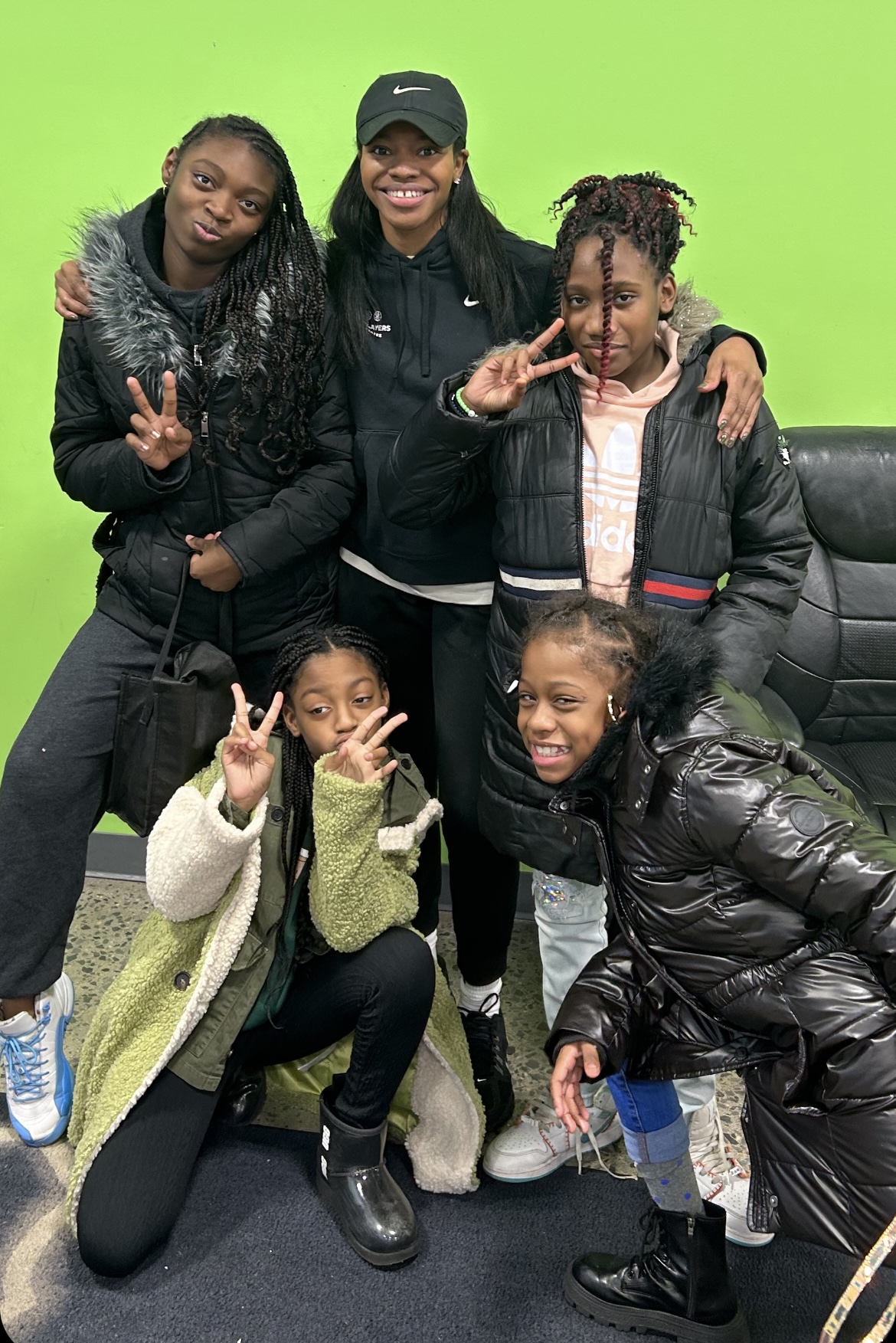
"Basketball does something that policy cannot, that conversations and focus groups can't do. And that is, engage youth in something that they enjoy, but which also affects the way they want to live their lives moving forward."
- Onyeka
Alesha: I have always said that the basketball court is a classroom. You learn so many life lessons from the game that go beyond the game. I still lean on the life lessons that basketball has taught me. My hope is that as the court is seen as a therapeutic space where young people can find refuge, I also hope that they also tap into the life lessons that basketball provides. I hope that when they finally decide to put their sneakers up for good, that they choose to pay the game back by finding their own way to pour into the next generation. That's the real impact.
PeacePlayers: A lot of young people around the world are growing up in increasingly divided societies. How can basketball make a difference in this?
Onyeka: Basketball does something that policy cannot, that conversations and focus groups can't do. And that is, engage youth in something that they enjoy, but which also affects the way they want to live their lives moving forward. And that in turn ends up developing leaders who can work on solving those difficult issues and maybe go on to create some of the policy that is needed. I also think, even just on a physical level, from running around and getting their heart rates up, we got the dopamine happening in the brain – participants are having an experience that feels good while engaging meaningfully with their peers. And the nerd in me is thinking, ’Oh, yeah, this is contact theory at work. We're bringing people together, and they're having these positive, equal-status kind of interactions that allow them to see that, ‘Ok, this person isn't so different from me.’ And then you realize that you can actually collaborate to achieve your goals together.
